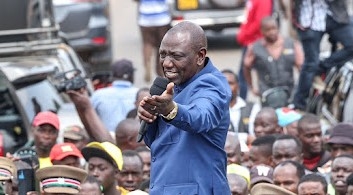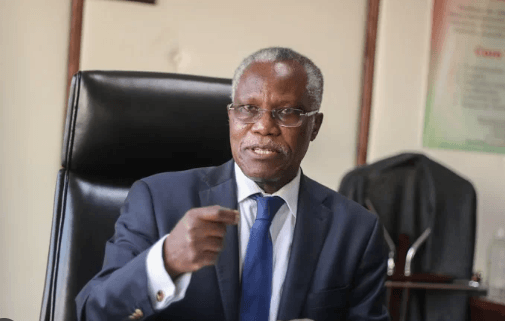Members of the European Parliament have approved the EU’s Economic Partnership Agreement with Kenya, bringing it closer to fruition
On Thursday, the MPs voted by 366 in favour, 86 against and 56 abstentions, to give their consent to the EU-Kenya Economic Partnership Agreement (EPA) that aims to strengthen trade and economic ties with Kenya.
It is the first agreement with a developing country in which the EU's new approach to trade and sustainable development is reflected.
The agreement includes binding and enforceable provisions on international standards and agreements on labour, gender equality, climate and the environment, and prevents both parties from lowering labour and environmental standards.
The trade and sustainable development clauses, which are new compared to the EU-East African Community EPA, will be binding: possible issues will be addressed through a dedicated dispute resolution mechanism.
The EU is Kenya’s second-largest trading partner, and its most important export market, according to European People's Party’s Alessandra Mussolini, rapporteur for the file.
The agreement, she noted, is a catalyst for economic growth, job creation and sustainable development.
It will provide duty-free, quota-free EU market access to all exports from Kenya as soon as it enters into force, as well as partial and gradual opening of the Kenyan market to imports from the EU.
“Kenya is by far the most important trading partner of the EU among the EAC partner countries, representing nearly half of EU imports from the EAC and more than half of its exports to the EAC,” Mussolini said in a statement.
By promoting trade and investment, the EPA contributes to economic growth and development in Kenya, she said, adding that increased exports and investments can lead to job creation, income generation, and overall improvement in living standards.
Total trade between the EU and Kenya reached €3.3 billion (Sh525.9 billion) in 2022, according to Commission data.
The EU’s imports from Kenya amount to €1.2 billion (Sh191.2 billion) and are mainly vegetables, fruits, and flowers.
EU’s exports amount to €2.02 billion (Sh321.9 billion) and are mainly in mineral and chemical products and machinery.
The Council of the EU now needs to give its final formal approval to the agreement, for the ratification process to be completed on the EU side.
The European Parliament vote comes after EPA was signed at State House Nairobi in December; a week after the Council had adopted it.
Kenya is banking on the agreement to grow its exports and cut the huge trade deficit, even as it taps Foreign Direct Investments.
The agreement now assures the country of duty-free, quota-free EU market access to all exports, except arms, as Kenya leads her East African Community peers in sealing a post-Brexit deal.
It also sets the ground for a partial and gradual opening of the Kenyan market to imports from the EU.
It brings to an end a long wait on the deal where negotiations on EPA between the East African Community and the EU (EAC-EU EPA) were concluded in 2014.
Only Kenya and Rwanda warmed up to the pact with Kenya signing and ratifying the agreement in September 2016. The EU and its member states also signed it in June 2016.
However, implementation of the EPA had not been possible because not all EAC partner countries signed and ratified it.
The EAC Summit of February 27, 2021, under the chairmanship of Kenya, reached a decision allowing individual EAC states to implement the EPA.
Except for Kenya, all EAC partner states are least-developed countries and still enjoy duty-free and quota-free access to the EU market.
The EU’s imports from Kenya are mainly vegetables, fruits, and flowers while exports to Kenya are mainly in mineral and chemical products and machinery.
During the December signing in Nairobi, President William Ruto said the agreement establishes a permanent mechanism to underpin trade and investment and transform mutually beneficial relations.
“The EU is not just a giant, lucrative market, it is a premium market whose demand guarantees higher earnings for our products and will drive our export production to higher levels of competitiveness,” Ruto said.
He is also hoping the deal will allow FDIs in Kenya, including investments in manufacturing areas of chemicals, pharmaceuticals, medical supplies and equipment.

















